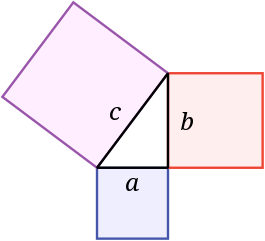What is school maths about?
You may have found yourself asking this question during the course of your studies. If you have, kudos to you! It’s natural to want to know the purpose of what we are forced to learn.
As I see it one main strand of school maths is to facilitate, on a societal level, our need to understand, and to a certain extent control, the universe! School maths does this by introducing people to the language of nature, which is mathematics (as observed by Galileo).
So it is that a lot of school maths is about providing the necessary concepts, language, and skills needed by future scientists, engineers, economists, etc to do just that; to describe, explain, predict, and control our environment, hopefully for the benefit of our species, as well as that of the planet, and all lifeforms on it.
At Edina Tuition my aim is to inspire you to study maths, to study it better, to understand it better, to aim high, and to achieve success. My hope is that along the way many other small questions will also be addressed so that you will be able to clarify for yourself the kind of things that cause you to become stuck.

 .
.